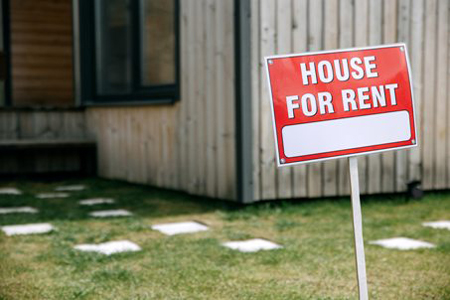
Renters’ Rights Would Go Up Under City’s Plan
San Diego released a new renter protection package that will make it harder for landlords to evict tenants and will give new rights to renters.
The City Council is expected to review the legislation, and if approved, it would surpass the state’s Tenant Protection Act of 2019, known as AB 1482, with stricter regulations in some areas.
The proposed law builds on restrictions that the city enacted during periods of the pandemic, that have since expired, and adds protections for residents who tenant advocates say are hardest hit by orders to relocate: seniors and people with disabilities. And it would specifically aim to make it harder for landlords to remove tenants so they can make renovations and then re-rent units for far higher rents, a practice affordable housing advocates say is linked to housing insecurity and homelessness in the region.
As such, these more stringent renters’ rights stand to rebalance the relationship between landlords and tenants with sweeping changes that limit when and how landlords can remove tenants.
“San Diegans who are paying their rent and abiding by their lease should not live in fear of eviction,” wrote Council President Sean Elo-Rivera in a news release. “Sadly, too often San Diego renters are being evicted despite following the rules.”
Current laws say landlords can evict tenants to take a rental off the market—and not compensate tenants for the disruption or expense. The new law proposes paying tenants two months’ rent if they are evicted at no fault of their own. Senior citizen or disabled tenants would get three months’ rent.
The new law would also kickstart renter protections on the first day of the lease and require more paperwork be given to renters by landlords informing them of their rights.
Under the proposal, a landlord is still allowed to evict someone for not paying rent or violating a condition of their lease after already receiving a warning. Criminal activity and criminal threats are both considered legal reasons to evict someone.
“The working group has made significant progress in developing new rules that fairly protect tenants and landlords,” said Alan Pentico, the executive director of the Southern California Rental Housing Association. “We appreciate the collaboration to date with Mayor Gloria and Council President Elo Rivera, and we look forward to finalizing a program that works for all parties.”
America’s Finest City isn’t alone in trying to increase rights for tenants, as most metro areas saw substantial rent increases over the last two years.
San Diego became one of the first American cities to declare “housing as a human right” in January. While the move was mostly symbolic, city council members said at the time they would follow up the declaration with action.
The legislation, to be heard at Tuesday’s council meeting, was endorsed by Mayor Todd Gloria in a news release. He wrote that people are becoming newly homeless before they can get the current homeless population housed. Gloria has been mayor during some of the largest rent increases in San Diego’s history.
The city of San Diego saw its average rent increase 14.8 percent in 2021, said real estate firm CoStar. It was the highest annual increase in more than 20 years of data. In 2022, rent increased 4.4 percent, a slowdown after substantial gains.
As of the first quarter of this year, the average monthly rent was $1,890 for a studio; $2,241 for a one-bedroom apartment; $2,824 for a two-bedroom; and $3,567 for a three-bedroom.
Proposed changes surpass the state’s renter protection law
There are three areas where the city would surpass the state:
The state’s just-cause protections require at least 12 months of tenancy before applying. “This ordinance indicates that the protections apply from day 1 of tenancy,” with an exception for three-month fixed tenancies.
The city’s proposed ordinance would provide more relocation assistance than the state for no-fault evictions. “Under state law, you get a month of your contract rent. The city of San Diego in this draft is proposing two months’ contract rent, or three months if there’s an elderly or disabled person as part of the household.”
The relocation assistance protections would apply to Section 8 housing choice vouchers, he said. Under state law, it’s unclear if those are protected or excluded.
Other stipulations in the draft:
- Landlords must give notice of a lease violation (such as not paying rent), and give time to fix the problem. Today, a landlord could just begin the eviction process immediately.
- A landlord must still give 30 days’ notice before a no-fault eviction but now must also provide the renter with an explanation of their rights to receive relocation assistance.
- After some no-fault evictions, renters will be given a chance to renew their tenancy if the property is back on the rental market within five years.
The legislation also attempts to define what is a substantial remodel. It says that before removing tenants, landlords must take steps that include: disclosing to residents they’re applying for permits, obtaining construction permits and showing a copy of the permits to the tenant, and disclosing under penalty of perjury the reason why construction is needed.
Source: SDuniontribune by Phillip Molnar




